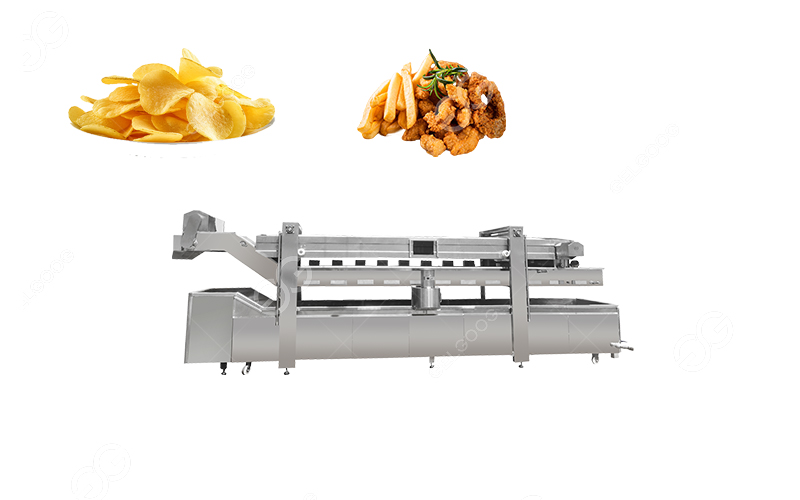In the realm of industrial food production, efficiency, consistency, and quality are paramount. Among the many technological innovations aiding this endeavor, automatic frying machines stand out as essential tools for meeting the demands of modern food processing. But what is the purpose of a frying machine? These machines are engineered to streamline the frying process, ensuring precise control over variables like temperature, cooking time, and oil quality.
Efficiency enhancement:
One of the primary purposes of frying machines is to enhance efficiency in large-scale food production operations. These machines are designed to handle substantial volumes of food items, significantly increasing throughput compared to manual frying methods. With automated loading and unloading mechanisms, continuous frying capabilities, and rapid cooking cycles, these machines optimize production workflows, allowing manufacturers to meet high demand without compromising on quality.
Consistency and quality assurance:
Consistency is key in the food industry, where uniformity of taste, texture, and appearance is crucial for consumer satisfaction. Frying machines excel in ensuring consistent results across batches. By precisely controlling factors such as oil temperature, cooking time, and frying conditions, these machines minimize variations in the finished product. This consistency not only enhances the quality of the food but also helps build trust and loyalty among consumers who expect a reliable product experience.
Temperature and oil management:
Maintaining optimal frying conditions is essential for achieving the desired texture, flavor, and appearance of fried foods. Frying machines employ advanced temperature control systems to regulate oil temperature with precision. Consistent oil temperature not only ensures uniform cooking but also prevents issues such as over-frying or undercooking, resulting in evenly cooked products with perfect crispness and color. Additionally, these machines often feature oil filtration and management systems to prolong oil life, reduce wastage, and maintain product quality.
Safety and labor reduction:
In addition to efficiency and quality benefits, frying machines contribute to workplace safety and labor reduction. By automating the frying process, these machines minimize the need for manual intervention, thereby reducing the risk of accidents and injuries associated with traditional frying methods. Moreover, with fewer manpower requirements for monitoring and operating the equipment, manufacturers can optimize labor utilization, allocate resources more efficiently, and focus on other aspects of production and quality control.
Versatility and customization:
Modern frying machines are designed to accommodate a wide range of food products, from battered and breaded items to vegetables, meats, and snacks. They offer versatility in frying methods, including deep frying, shallow frying, and air frying, allowing manufacturers to cater to diverse consumer preferences and market demands. Furthermore, these machines can be customized with adjustable settings and parameters to fine-tune the frying process according to specific product requirements, ensuring optimal results for various food items.
Frying machines play a pivotal role in the food manufacturing industry by streamlining operations, ensuring consistency, enhancing quality, and improving safety. As consumer demand for convenience, quality, and variety continues to grow, the significance of these advanced frying technologies will only increase.
